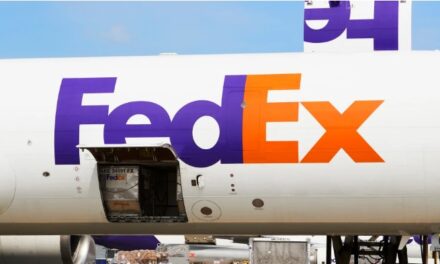
FedEx Express introduces fuel efficient Boeing 757 to aircraft fleet
FedEx Express has launched its inaugural revenue flight using a Boeing 757 freighter. The new route provides reliable cargo service between the Memphis International Airport (MEM) and the Ronald Reagan Washington National Airport (DCA) eight times per week.
This FedEx Boeing 757 flight into DCA also serves a new airport for FedEx, further extending the reliability, connectivity and quality of FedEx service throughout the mid-Atlantic region.
In addition to customer benefits, the introduction of the Boeing 757 to the FedEx fleet continues the company’s commitment to growth in an efficient, environmentally-conscious way. The Boeing 757 is known for its improved fuel efficiency and reduced noise levels, and will be phased in over time as the less fuel-efficient Boeing 727 aircraft are retired from service.
The introduction of the Boeing 757 model into the company’s fleet offers measurable cost benefits for FedEx during a period of unprecedented energy prices. The aircraft has significantly improved fuel-burn efficiencies, cutting greenhouse gas emissions and reducing fuel consumption up to 36 percent while providing 20 percent more capacity per flight, when compared to the Boeing 727 it replaces. FedEx Express plans to introduce an additional 11 Boeing 757s into service over the next year.
Efforts at FedEx Express to reduce energy consumption and greenhouse gas emissions extend across the operation.
Flights to Washington, D.C., Will Have Reduced Greenhouse Emissions and Noise Levels, Expanding Company Commitment to Conscientious Growth
FedEx Express has launched its inaugural revenue flight using a Boeing 757 freighter. The new route provides reliable cargo service between the Memphis International Airport (MEM) and the Ronald Reagan Washington National Airport (DCA) eight times per week.
This FedEx Boeing 757 flight into DCA also serves a new airport for FedEx, further extending the reliability, connectivity and quality of FedEx service throughout the mid-Atlantic region.
In addition to customer benefits, the introduction of the Boeing 757 to the FedEx fleet continues the company’s commitment to growth in an efficient, environmentally-conscious way. The Boeing 757 is known for its improved fuel efficiency and reduced noise levels, and will be phased in over time as the less fuel-efficient Boeing 727 aircraft are retired from service.
The introduction of the Boeing 757 model into the company’s fleet offers measurable cost benefits for FedEx during a period of unprecedented energy prices. The aircraft has significantly improved fuel-burn efficiencies, cutting greenhouse gas emissions and reducing fuel consumption up to 36 percent while providing 20 percent more capacity per flight, when compared to the Boeing 727 it replaces. FedEx Express plans to introduce an additional 11 Boeing 757s into service over the next year.
Efforts at FedEx Express to reduce energy consumption and greenhouse gas emissions extend across the operation.
In 2009, FedEx will introduce the Boeing 777 to its fleet. This freighter provides greater payload capacity while using 18 percent less fuel than planes in the company’s current international fleet.
FedEx Express employees are increasing fuel efficiency and reducing fuel emissions during operations with more than 30 initiatives that range from improvements in flight planning to aircraft operation efficiencies.
Ground support equipment at FedEx operations at select airports has been converted from internal combustion engine models to electric units, which saves 9 million gallons of fuel annually.












